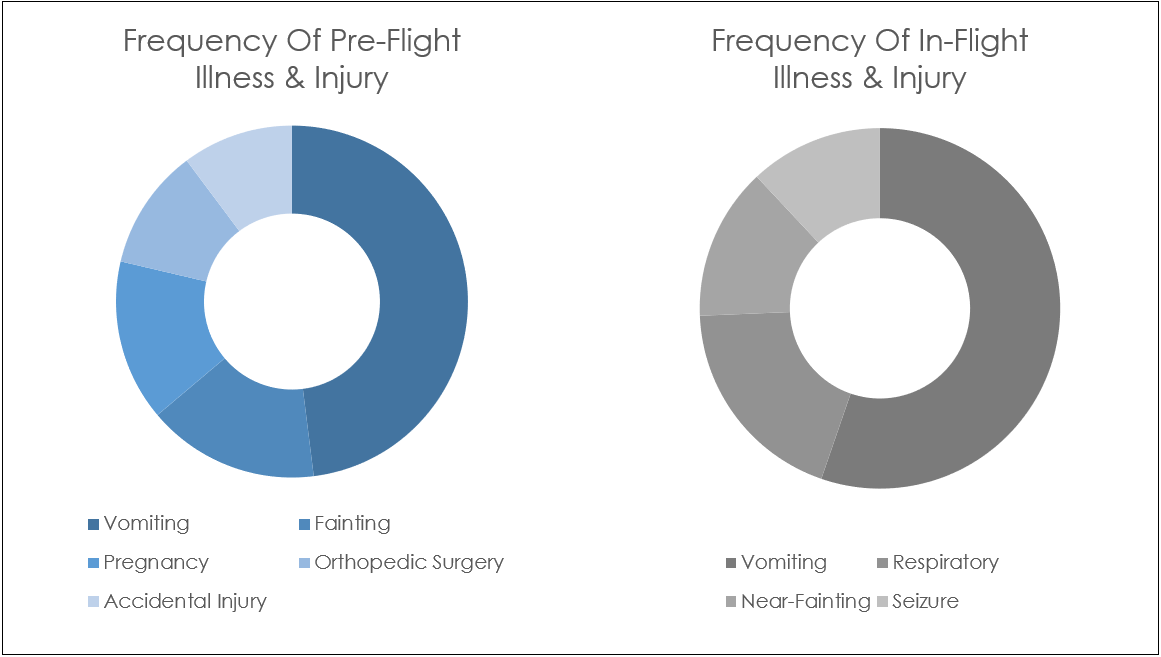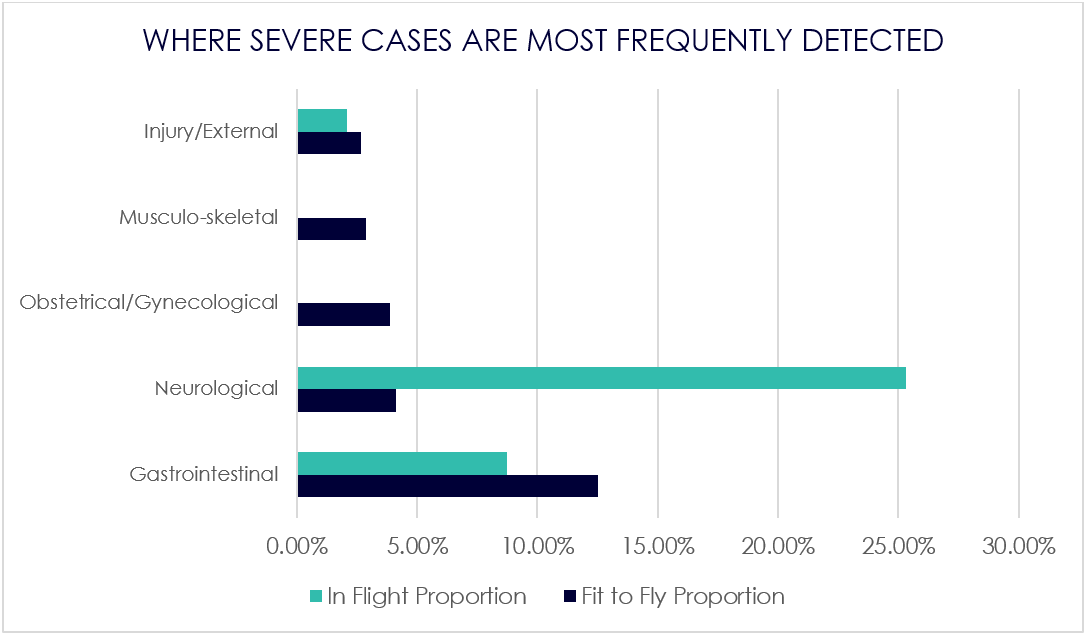Whether for business or pleasure, travel always comes with our health in tow. Just because we’re heading out doesn’t mean we leave our medical conditions behind. This is why Fit-to-Fly assessments are critical—they ensure that everyone on board is medically fit to travel, promoting a safe and smooth journey for all.
What Are Fit-to-Fly Assessments?
Fit-to-Fly assessments check if a passenger is medically fit to take a flight. These thorough evaluations ensure a passenger’s health is carefully reviewed before boarding. With health histories following us wherever we go, Fit-to-Fly assessments help address potential issues before they become problems mid-flight.
How Fit-to-Fly Assessments Work
Here’s a quick overview of how the process typically works:
- Initial Presentation: A passenger arrives at the airport showing symptoms of illness or injury.
- Contacting Medical Support: Airline staff contact medical experts via a dedicated Fit-to-Fly line or digital portal.
- Medical Evaluation: MedAire’s medical team, made up of doctors and nurses, reviews the case and asks detailed questions about the passenger’s medical history, current health, and symptoms based on the signs and symptoms the passenger presents.
- Recommendation: Based on this evaluation, the medical team determines whether the passenger can fly safely.
This approach uses the expertise of medical professionals to ensure accurate assessments and adherence to health and safety guidelines.
Why Fit-to-Fly Assessments Matter
- Keeping Everyone Safe Fit-to-Fly assessments’ main goal is to guarantee that everyone on board is safe. By identifying potential health risks before the flight, these assessments help prevent medical emergencies in the air, which can be challenging to handle and pose serious risks.
- Minimising Flight Disruptions Medical emergencies can disrupt flight schedules, causing diversions and delays. By checking passengers’ fitness-to-fly before they board, airlines can reduce the risk of in-flight medical issues and keep operations running smoothly.
- Reducing In-Flight Medical Emergencies In-flight medical emergencies are among the most stressful situations during a flight. Proactive Fit-to-Fly assessments can significantly reduce the likelihood of these events by identifying at-risk passengers before they board. Recognising symptoms before boarding can prevent health issues from escalating mid-flight. Of course, MedLink is always available to support when emergencies occur, but the aeroplane is not as well equipped as a medical facility on the ground.
Case-Based Statistics

The importance of “Fit-to-Fly” assessments cannot be overstated when it comes to ensuring the safety and well-being of passengers. Recent data analysis of 70,686 “Passenger Fit-to-Fly” cases and 90,662 in-flight medical cases reveals a noteworthy correlation (r = 0.53) between health conditions identified during pre-flight assessments and those that result in medical emergencies during flights.
Common issues such as gastrointestinal problems, including vomiting, and neurological conditions like fainting are frequently observed in both pre-flight and in-flight scenarios. By proactively identifying and managing these high-risk conditions on the ground, airlines can significantly reduce the occurrence of in-flight medical events and the need for emergency medical diversions.

Notably, gastrointestinal issues are frequently detected both pre-flight (12.50%) and in-flight (8.74%), illustrating the ongoing challenge of managing these conditions despite comprehensive health checks prior to boarding.
Neurological conditions present a unique challenge, with a significantly higher in-flight occurrence (25.33%) than pre-flight detection (4.11%). This discrepancy suggests these symptoms may be more episodic or exacerbated by the flight environment, highlighting the need for enhanced screening methods.
Interestingly, while obstetrical/gynaecological (3.85%) and musculoskeletal (2.89%) issues are detected during “Fit-to-Fly” assessments, their presence is minimal among in-flight medical emergency cases, suggesting that the severe cases are effectively managed on the ground. This demonstrates the effectiveness of visual and reportable symptom detection in pre-flight assessments.
MedAire uses this data to continually refine our screening techniques, especially for less visually apparent conditions. Enhancing our pre-flight health checks ensures passenger safety and mitigates the risk of severe in-flight medical emergencies, promoting a safer and more comfortable travel experience for all.
When to Reconsider Travelling
Being mindful of your health before heading to the airport is essential. Here are some scenarios in which it might be best to consult with a medical professional before deciding to travel:
- Symptoms of Contagious Illness: If you have symptoms like a fever, persistent cough, or difficulty breathing, it’s advisable to consult a healthcare provider to determine if you should postpone your travel to prevent spreading illness.
- Recent Surgery or Hospitalisation: If you’ve recently had surgery or been hospitalised, consult your healthcare provider before flying. The cabin environment and prolonged immobility can affect recovery.
- Chronic Conditions: Passengers with poorly managed chronic conditions, like severe asthma or heart disease, should evaluate their health in consultation with their healthcare provider before flying.
- Recent Exposure to Infectious Diseases: If you’ve been in close contact with someone diagnosed with an infectious disease, monitor yourself for symptoms and seek medical advice on whether it’s safe to travel.
Fit-to-Fly assessments are essential to modern air travel, ensuring that health and safety standards are maintained. By proactively identifying potential medical issues, these assessments minimise in-flight medical emergencies, reduce disruptions, and provide peace of mind for passengers and crews.
Understanding the importance of Fit-to-Fly assessments and caring for your health can significantly enhance your travel experience. The principles of Fit-to-Fly assessments continue to be a cornerstone of reliable and confident travel. Whether you are a passenger preparing for your next journey or an aviation professional striving to uphold safety standards, Fit-to-Fly assessments help ensure a safe and secure air travel experience.